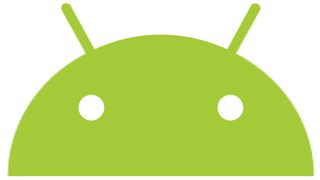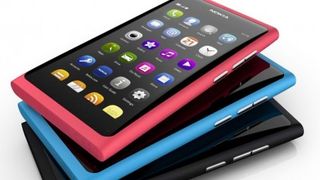Tizen: The operating system that could thwart Android?
We delve into the depths of Tizen

The name 'Tizen' has been bandied about in mobile tech circles for some time now but for anyone other than the most ardent follower of mobile matters, the odd-sounding moniker mightn't mean all that much.
For those who are still unsure what exactly Tizen is, what it might mean to the general tech consumer, and wondering whether it'll prove a viable competitor to Google's Android, we've taken a closer look at this next gen-operating system...
Doing the robot
Since 2007, Google's Android mobile platform has gone from strength to strength, its inextricable rise to prominence mirroring that of the smartphones it powers.
In six short years, Android devices have become pre-eminent in the smartphone space thanks mainly to the continual innovation and powerful marketing strategies of Samsung- something that has seen the Korean firm's output dominating worldwide sales and establishing Google's OS as the mobile platform of choice for OEMs, developers and consumers alike.
Whether Android's seemingly unshakable position would have resulted without Samsung's backing, or Samsung's dominance of worldwide smartphone sales would have happened without Android in tow, is a debate that still rolls on.

What is clear however is that JK Shin and co are increasingly looking at alternatives as a way to maximise potential revenues.
Why so? Because whilst Android may feature on its best-selling wares, the spoils from that particular eco-system - be it from in-game purchases, streaming services such as Play Music, or the lucrative mound of data accrued from such services (that can be subsequently used to leverage other Google products) - don't go into Samsung's bank account.
Get daily insight, inspiration and deals in your inbox
Get the hottest deals available in your inbox plus news, reviews, opinion, analysis and more from the TechRadar team.
The solution to such a conundrum? A 'home-cooked' operating system that whilst open-source in nature, has the reigns held somewhat by Samsung. Enter Tizen...
System addict
So, this Tizen then. You've probably gathered that it's a mobile OS and that Samsung has its finger in this particular software pie.
Most casual observers probably aren't aware however that, much like Android before it, Tizen has its roots in Linux and is governed by a 'steering group' comprising of device manufacturers, software developers, and mobile network operators.
Samsung and chip maker Intel are the key drivers of the initiative first galvanised in 2012 - Tizen rose phoenix-like from the ashes of Intel and Nokia's much talked about (but never really made it out into the open) MeeGo OS and Samsung's decision to incorporate its ailing native platform Bada into the new venture.

The aim, although not explicitly stated as such, appears to be to take on the might of Android by extending the reach to third party devs by supporting JavaScript, CSS, and most pertinently, HTML5.
The fledgling OS is not restricted to mobile devices however - the Tizen Foundation envisage the platform's versatility allowing it to power netbooks, tablets, TVs, and in-car systems.
The latter in particular seems to be a sector ready to embrace the platform with director of the Tizen Foundation and Intel platform and business manager, Chris Croteau, recently commenting that the OS has "a strong base built up in automotive" and that the "automotive grade Linux consortium, led by Toyota and Jaguar and Land Rover, is all based on Tizen."

Indeed, this ties in with the Tizen Foundation's gathering of support from no less than 36 other companies including Huawei, Fujitsu, Panasonic, Konami, eBay, and Japanese network NTT Docomo to call on in their quest to broaden commercial possibilities for the platform beyond that of Samsung's initial goal of lessening its dependence on Android.
So, the cornerstones all appear to be in place, so when will we see it on an actual phone?
Left to their own devices
The cynical out there might suggest that Tizen could have a touch of MeeGo's smoke and mirrors about it, given that the internet has been awash with talk of the OS since its launch at Mobile World Congress 2013 and yet actual devices running it have been thin on the ground.
Most Popular


